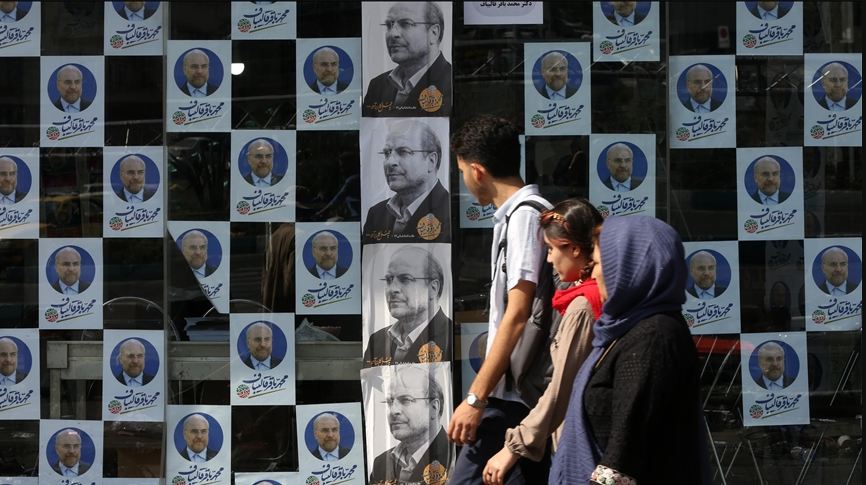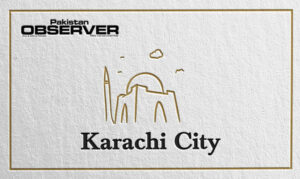
Iran’s snap presidential election on Friday is shaping up to be a closer-than-expected contest between one reformist and two conservative candidates, with pre-election polls showing them evenly poised.
Masoud Pezeshkian, a veteran lawmaker and the consensus candidate of the reformist alliance, started off as a low-profile contender but has gradually climbed up in independent opinion polls.
He is up against two formidable conservative figures, two-time parliament speaker Mohammad Baqer Qalibaf and former nuclear negotiator Saeed Jalili, with two more hopefuls trailing behind and another two having withdrawn from the race.
Pezeshkian’s bid for the presidency has been bolstered by the support of top leaders from the reformist camp, including former President Muhammad Khatami and ex-Foreign Minister Javad Zarif.
Qalibaf and Jalili belong to the same political camp and have withdrawn from past presidential races in favor of other conservative candidates.
However, both have hinted they will go through this time, despite concerns about a split conservative vote.
Policy Priorities
Experts believe Iran’s general foreign policy is likely to remain unchanged irrespective of who takes over next, but the modus operandi and details could differ.
Pezeshkian is more open to global engagement, including with the West, and intends to initiate reforms in both economic and cultural domains, while Qalibaf and Jalili will have a conditional approach to negotiations and are likely to maintain the status quo on sociocultural issues.
“Reformists have traditionally favored open engagement and negotiations with the West, which was the defining feature of (ex-President Hassan) Rouhani’s government when the nuclear deal was clinched,” Shahab Sadeghi, an Iranian strategic affairs analyst, told Anadolu.
“But conservatives believe the Americans cannot be trusted after what (ex-President) Donald Trump did to the nuclear accord.”
He said Pezeshkian is likely to pick up where Rouhani left off, particularly on negotiations over Iran’s nuclear program and sanctions, but will have to overcome the conservative-dominated parliament.
It was a parliamentary law that required the Rouhani administration to scale up uranium enrichment in 2021, despite the government’s reluctance to do so, and Pezeshkian is likely to face the same conundrum, he explained.
On the other hand, he said, Qalibaf and Jalili are likely to follow the roadmap of late former President Ebrahim Raisi’s administration, focusing more on strengthening ties with countries “opposed to US unilateralism,” such as Russia and China.
Fereydoun Abbasi, an ex-lawmaker and former head of Iran’s nuclear agency, told Anadolu that a victory for Jalili “could compel Western nations to reconsider the policy of sanctions.”
Observers consider Jalili a more hardline figure than Qalibaf when it comes to relations with the West and negotiations to remove sanctions.
Abbasi said Jalili’s “unwavering stance” against Western pressures represents a “peace-through-strength approach,” which could prompt a strategic shift in Western policies towards Iran.
Abbas Akhoundi, a former minister and senior reformist politician who has thrown his weight behind Pezeshkian, is of the opinion that the reformist candidate’s election could pave the ground for a “transformative foreign policy.”
Akhoundi, whose own candidacy was rejected by the Guardian Council, the country’s top vetting body, said a Pezeshkian presidency would lead to “improved diplomatic ties and end the country’s international isolation.”
He said the reformist politician would “unlock Iran’s financial channels” and draw crucial investments to boost economic growth.
Sanctions and Other Issues
One of the most pressing issues in pre-election campaigning has been Iran’s sanctions-battered economy, with all contenders pledging to revitalize it with different formulas.
The government of Raisi, who died in a plane crash last month, had pursued the issue of lifting sanctions, but his focus was primarily on boosting engagement with countries in the region.
While the conservative candidates have pledged to follow Raisi’s path, the reformist contenders advocate greater interaction with the world, including direct or indirect negotiations with the US.
Pezeshkian has vowed to reopen communication channels with the West to have the sanctions lifted, stressing in presidential debates that they have been roadblocks in attracting trade partners and achieving growth targets.
He has vigorously defended the 2015 nuclear deal and been vocal about women-centric issues, opposing the parliamentary bill to implement an Islamic dress code.
In contrast, Qalibaf and Jalili have hinted at continuing the foreign policy of the Raisi government – engaging in indirect negotiations with the US but at the same time trying to circumvent and nullify the sanctions.
Qalibaf said in the presidential debates that Iran’s diplomatic apparatus must pursue the issue of neutralization of sanctions, while stressing that he would be open to result-oriented negotiations with the West.
The parliament speaker, who has performed well in pre-election opinion polls, said he believes that sanctions harm the country, but added that the US has “always shown itself to be an enemy” of Iran.
“Be sure we are negotiating with the enemy, not someone who will treat you equally and justly,” he said in one of the debates.
Jalili, the former nuclear negotiator who is neck-and-neck with Qalibaf in pre-election polls, follows the same line, but has a more hardline stance on negotiations on the nuclear program.
In the presidential debates, Jalili said he would “make the enemy regret” its actions of imposing sanctions on Iran, adding that he has already prepared an “action plan.”
He also questioned those who claim the 2015 Iran nuclear deal benefited the country economically, saying the consequent growth was “zero and negative.”
On the issue of the hijab, Qalibaf has backed the parliamentary bill and urged cultural bodies to do their part in implementing it, while Jalili accused the West of censoring the “glorious role” of Iranian women in various fields and defended the dress code as a way to “preserve and strengthen the sanctity of the institution of family.”

